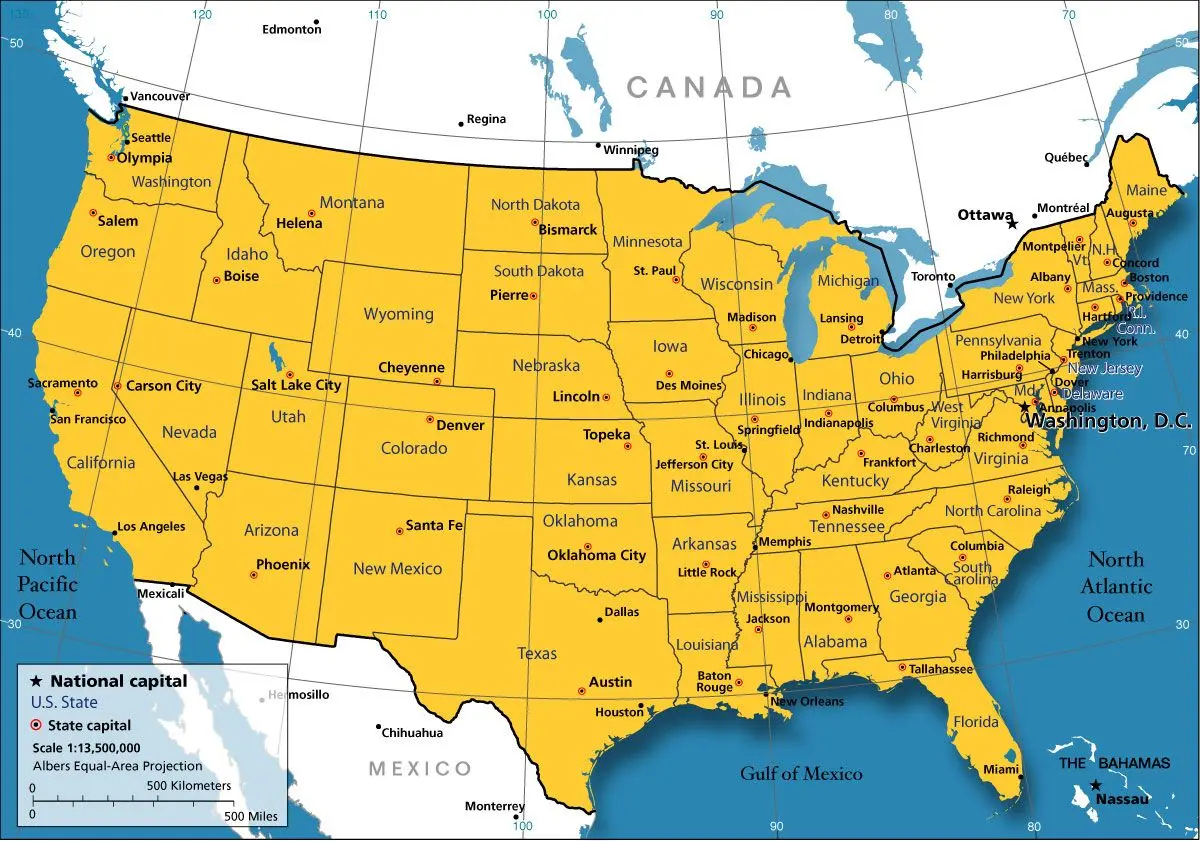In the ever-changing landscape of the tourism industry, travel agents play a pivotal role in crafting seamless and memorable travel experiences for their clients. As the industry becomes more dynamic and customer expectations rise, it is imperative for tourism companies to invest in the professional growth of their travel agents. Selecting the right training program is not just a strategic investment but a necessity for companies aiming to differentiate themselves in a highly competitive market. A well-curated training program equips travel agents with the skills, knowledge, and tools they need to excel in their roles and provide exceptional service.
The scope of training programs for travel agents extends beyond basic itinerary planning. It encompasses areas such as international travel regulations, cultural awareness, customer service excellence, and even technological proficiency. These programs are designed to address the unique challenges agents face daily, whether it’s navigating visa complexities for international travelers or tailoring trips to meet specific client preferences. By empowering travel agents with a comprehensive skill set, tourism companies can ensure that they remain adaptable, resourceful, and well-prepared to cater to diverse customer needs.
 Moreover, a strong focus on professional development reflects a company’s commitment to quality and innovation. In an industry driven by customer satisfaction and trust, well-trained travel agents can build lasting relationships with clients, enhancing brand loyalty and reputation. Whether it’s mastering crisis management or embracing sustainability in tourism, the right training program not only enhances an agent’s expertise but also aligns with the company’s broader objectives of growth and customer retention.
Moreover, a strong focus on professional development reflects a company’s commitment to quality and innovation. In an industry driven by customer satisfaction and trust, well-trained travel agents can build lasting relationships with clients, enhancing brand loyalty and reputation. Whether it’s mastering crisis management or embracing sustainability in tourism, the right training program not only enhances an agent’s expertise but also aligns with the company’s broader objectives of growth and customer retention.
Here are the most critical factors to consider when choosing such a program.
1. Coordination and Management Skills

Effective travel agents must possess excellent coordination and management skills to handle multiple clients, itineraries, and service providers seamlessly. A comprehensive training program should include modules on:
- Itinerary Planning: Teaching agents how to create customized travel plans that meet diverse customer needs.
- Time Management: Training agents to manage bookings, cancellations, and rescheduling efficiently.
- Team Collaboration: Developing skills to work with tour guides, transport companies, and hospitality providers to ensure smooth operations.
- Crisis Management: Preparing agents to address unforeseen challenges like flight delays, hotel overbookings, or emergencies effectively.
By focusing on these aspects, the training program equips agents to deliver a seamless travel experience for clients, thereby building trust and customer loyalty.
2. International Travel Services

Given the global nature of the travel industry, agents must have a thorough understanding of international travel regulations, customs, and services. Training programs should focus on:
- Visa and Immigration Rules: Educating agents on the documentation and processes for different countries.
- Currency Exchange and Financial Transactions: Teaching agents about exchange rates, international payment systems, and advising clients on managing foreign transactions.
- Cultural Awareness: Offering insights into cultural etiquette and customs to help clients navigate foreign destinations comfortably.
- Health and Safety Protocols: Informing agents about vaccination requirements, travel insurance options, and health advisories for international travel.
Equipping agents with this knowledge ensures they can confidently assist clients traveling across borders.
3. Customer Service and Professionalism

The cornerstone of any successful travel agency is exceptional customer service. A training program should focus on developing soft skills and professionalism to enhance the client-agent relationship. Key components include:
- Communication Skills: Training agents to listen actively, respond empathetically, and provide clear information to clients.
- Problem-Solving Abilities: Preparing agents to resolve customer issues efficiently and creatively, ensuring client satisfaction.
- Sales Techniques: Teaching agents how to upsell services like premium accommodations or exclusive tours without being pushy.
- Professional Etiquette: Emphasizing punctuality, proper dress codes, and polite behavior to maintain a professional image.
By fostering these skills, travel agents can build long-term relationships with clients and boost customer retention.
4. Meeting Specific Needs and Demands

Different clients have unique preferences, and a training program must prepare agents to address these diverse needs effectively. This includes:
- Niche Market Knowledge: Offering insights into niche travel segments like luxury travel, eco-tourism, adventure tourism, or medical tourism.
- Technology Proficiency: Training agents to use booking platforms, travel apps, and CRM tools to enhance efficiency and personalization.
- Accessibility Planning: Educating agents about arranging travel for clients with special needs, such as elderly travelers or individuals with disabilities.
- Sustainability Practices: Encouraging agents to promote eco-friendly travel options and sustainable tourism initiatives.
By focusing on customization and flexibility, the training program can help agents provide a superior travel experience that exceeds client expectations.
Conclusion
Choosing the right training program for travel agents is a strategic decision that impacts the overall success of a tourism company. Programs that emphasize coordination, international travel expertise, customer service, and meeting specific client needs will empower agents to excel in their roles. By investing in comprehensive training, tourism companies can ensure their agents deliver outstanding service, enhance customer satisfaction, and foster long-term loyalty.
FAQs
1. Why is customer service training important for travel agents?
Customer service training helps travel agents develop communication, problem-solving, and professionalism skills, ensuring they can provide excellent support to clients.
2. What should a training program teach about international travel?
A good program should cover visa requirements, cultural etiquette, currency exchange, and health protocols to equip agents with the knowledge to assist international travelers.
3. How can training programs help agents address niche markets?
Training can offer specialized knowledge about luxury travel, eco-tourism, or adventure tourism, enabling agents to cater to specific client preferences.
4. Should travel agents learn technology skills?
Yes, proficiency in booking platforms, CRM tools, and travel apps enhances efficiency and helps agents provide a seamless experience for clients.
5. How do training programs prepare agents for crisis management?
Training includes scenarios and strategies to handle emergencies like flight delays, overbookings, or lost documents, ensuring agents can assist clients effectively in challenging situations.



















Thanks for ones marvelous posting! I certainly
enjoyed reading it, you happen to be a great author.I will make sure to bookmark your
blog and will often come back sometime soon. I want to encourage
you continue your great job, have a nice morning!
Its not my first time to go to see this site, i am browsing this website dailly and take nice information from here daily.
Unquestionably believe that which you stated.
Your favorite justification appeared to be on the web the simplest thing
to be aware of. I say to you, I definitely get irked while people consider worries that they plainly don’t know about.
You managed to hit the nail upon the top as well as defined out the
whole thing without having side effect , people could take a signal.
Will likely be back to get more. Thanks
Heyy there, I think your blog might be having browser compatibility issues.
When I look at your blog site in Firefox, it
looks fine but when opening in Internet Explorer, it has some overlapping.
I just wanted to give you a quick heads up! Other then that, excellent blog!
I really like your blog.. very nice colors & theme.
Did you make this website yourself or did you hire someone to do it for you?
Plz respond as I’m looking to design my own blog and would like to find out where u got
this from. thank you
Cieiawy post! Dzięki za przydatne treści.
Rozważam zakup kkomputera i zastanawiam się, jakie modele polecacie?
Fajnie, że w Sandomierzu można kupić dobry sprzęt.
Czy prowadzicie też sprzedaż stacjonarną?
Poza tym interesuje mnie jak wygląda serwis komputerowy.
Dzięki za odpowiedź i pozdrawiam!
Ahaa, its pleasant dialogue about this paragraph at this place
at this website, I have read all that, so now me also commenting here. http://Blog.Pfoetchen-Tour-Heidelberg.de/2025/03/18/click-to-sign-up-for-an-account-on-22bet-input-your-email-and-password-to-access-every-bonus-and-offer-for-mobile-slots-9/
Ahaa, its pleasant dialogue about this paragraaph at this
place at this website, I have read all that, soo now me also commenting here. http://Blog.Pfoetchen-Tour-Heidelberg.de/2025/03/18/click-to-sign-up-for-an-account-on-22bet-input-your-email-and-password-to-access-every-bonus-and-offer-for-mobile-slots-9/
When I originally left a comment I seem to have clicked on the -Notify
me when new comments are added- checkbox and now every time a comment is
added I recieve 4 emails with the same comment. Perhaps there is a way you are able
to remove me from that service? Appreciate it!
I used to be recommended this web site by my cousin. I am
no longer sure whether or not this put up is written by way of
him as nobody else know such specified approximately my
trouble. You’re wonderful! Thank you!
This is a very good tip especially to those fresh to the blogosphere.
Brief but very precise information… Thanks for sharing this
one. A must read post!
Wonderful blog! I found it while surfing around on Yahoo News.
Do you have any tips on how to get listed in Yahoo News?
I’ve been trying for a while but I never seem to get there!
Cheers
Paragraph writing is also a excitement, if you be familiar with after that you can write otherwise it
is complicated to write.
We are a group of volunteers and opening a new scheme in our community.
Your website offered us with valuable info to work
on. You’ve done a formidable job and our entire community will
be thankful to you.
Genuinely no matter if someone doesn’t know then its up to other
users that they will assist, so here it takes place.
situs anak kontol link bokep semua
Heya! I realize this is sort of off-topic but I needed
to ask. Does building a well-established website like yours take a
massive amount work? I am completely new to blogging however I do write
in my diary every day. I’d like to start a blog so I can easily share my experience and views online.
Please let me know if you have any suggestions or tips for new aspiring blog owners.
Thankyou!
Hi there, after reading this remarkable post i am too cheerful to share my familiarity here with friends.
This is very interesting, You’re a very skilled blogger.
I have joined your feed and look forward to seeking
more of your magnificent post. Also, I have shared your website in my social networks!
I’ve learn several just right stuff here. Definitely
price bookmarking for revisiting. I wonder how so much effort you place to
create any such great informative site.
Hi there I am so thrilled I found your site, I really found you by error,
while I was researching on Aol for something else, Anyhow I am
here now and would just like to say thanks a lot for
a tremendous post and a all round exciting blog (I also love the theme/design),
I don’t have time to browse it all at the minute but I have bookmarked it and also included your RSS feeds, so when I have time I
will be back to read more, Please do keep up the great b.
Thank you for sharing such insightful content about Tantra Yoga!
It’s inspiring to see how this ancient practice
can help us connect with our inner energy and bring balance to our lives.
The emphasis on mindfulness, self-awareness, and spiritual growth resonates deeply.
I especially appreciate how you explained the connection between Tantra and holistic well-being.
Looking forward to exploring more of your posts and learning new techniques
to incorporate into my daily practice. Keep up the
amazing work!
This website was… how do you say it? Relevant!! Finally I have found
something which helped me. Thanks!
Greetings! I’ve been following your site for some time
now and finally got the bravery to go ahead and give you a shout out from New Caney Texas!
Just wanted to mention keep up the fantastic
job!
I know this if off topic but I’m looking into starting my own blog and was curious what all
iis needed to get set up? I’m assuming having a blog like yours
would cost a pretty penny? I’m not very internet savvy so
I’m not 100% certain. Any tips or advice would be greatly appreciated.
Cheers
What a material of un-ambiguity and preserveness of valuable knowledge on the topic
of unpredicted feelings.
A fascinating discussion is definitely worth comment.
There’s no doubt that that you should publish more about this
issue, it might not be a taboo matter but typically
people don’t speak about these subjects. To the next! Kind
regards!!
Great information. Lucky me I ran across your blog by accident (stumbleupon).
I’ve bookmarked it for later!
Hello to every one, for the reason that I am truly keen of reading this
weblog’s post to be updated daily. It contains fastidious stuff.
Wow that was odd. I just wrote an extremely long comment but after I clicked
submit my comment didn’t show up. Grrrr… well
I’m not writing all that over again. Anyhow, just wanted to say fantastic blog!
Excellent blog you’ve got here.. It’s hard to find excellent writing like yours nowadays.
I really appreciate individuals like you! Take care!!
Hi there it’s me, I am also visiting this web site regularly,
this website is genuinely nice and the users are in fact sharing nice thoughts.
Good replies in return of this query with solid arguments and explaining all regarding that.
Good post. I learn something totally new and challenging on sites
I stumbleupon everyday. It will always be useful to read content from
other authors and practice a little something from other web sites.
Having read this I believed it was rather enlightening. I appreciate you finding the
time and energy to put this informative article together. I once again find myself personally spending a lot of time
both reading and posting comments. But so what, it was still worth it!
My relatives all the time say that I am killing my time here
at web, except I know I am getting experience every day by reading such good articles or reviews.
My partner and I stumbled over here coming from a different website and thought I should check things
out. I like what I see so i am just following you. Look forward to looking into your web page repeatedly.
I every time used to study paragraph in news papers but now as I am a user of web therefore from now I
am using net for content, thanks to web.
link porno grafilink porno grafilink porno grafi link porno grafilink porno grafilink porno grafi link porno grafilink porno grafilink porno grafi link porno grafilink porno
grafilink porno grafi link porno grafilink porno grafilink porno grafi link porno grafilink
porno grafilink porno grafi link porno grafilink porno grafilink porno grafi link porno
grafilink porno grafilink porno grafi link porno grafilink porno grafilink porno grafi link porno grafilink porno grafilink porno grafi link porno grafilink porno grafilink porno
grafi link porno grafilink porno grafilink porno grafi link porno grafilink porno grafilink
porno grafi link porno grafilink porno grafilink porno grafi link
porno grafilink porno grafilink porno grafi link porno grafilink porno
grafilink porno grafi link porno grafilink porno grafilink porno grafi link
porno grafilink porno grafilink porno grafi link porno grafilink porno
grafilink porno grafi link porno grafilink porno grafilink porno
grafi link porno grafilink porno grafilink porno grafi link
porno grafilink porno grafilink porno grafi link porno grafilink porno grafilink porno grafi link porno grafilink porno grafilink porno grafi link porno grafilink porno grafilink porno grafi link porno grafilink
porno grafilink porno grafi link porno grafilink
porno grafilink porno grafi link porno grafilink porno grafilink porno grafi link porno grafilink porno grafilink porno grafi
link porno grafilink porno grafilink porno grafi link porno grafilink
porno grafilink porno grafi link porno grafilink porno grafilink porno grafi
link porno grafilink porno grafilink porno grafi link porno grafilink porno grafilink porno grafi link porno grafilink porno grafilink
porno grafi link porno grafilink porno grafilink porno grafi link porno grafilink porno grafilink porno grafi link porno grafilink porno grafilink porno grafi link porno
grafilink porno grafilink porno grafi link porno grafilink porno grafilink porno
grafi link porno grafilink porno grafilink porno grafi link porno grafilink porno grafilink porno grafi link porno grafilink porno grafilink porno grafi link porno grafilink porno grafilink porno grafi link porno grafilink porno grafilink
porno grafi link porno grafilink porno grafilink porno grafi link porno
grafilink porno grafilink porno grafi link porno grafilink porno grafilink porno grafi link porno grafilink porno grafilink porno grafi link porno grafilink porno grafilink porno grafi link porno grafilink porno
grafilink porno grafi link porno grafilink porno grafilink porno grafi
link porno grafilink porno grafilink porno grafi link porno grafilink porno grafilink porno
grafi link porno grafilink porno grafilink porno grafi link
porno grafilink porno grafilink porno grafi link porno grafilink porno
grafilink porno grafi link porno grafilink porno
grafilink porno grafi link porno grafilink porno grafilink porno grafi link porno grafilink porno grafilink porno grafi link porno
grafilink porno grafilink porno grafi link porno
grafilink porno grafilink porno grafi link porno grafilink porno grafilink porno grafi
I know this web site gives quality dependent posts
and additional stuff, is there any other web site which offers these kinds of things in quality?
Hi i am kavin, its my first time to commenting anywhere,
when i read this post i thought i could also create comment due too this brilliant
post.
Paragraph writing is also a excitement, if you
know after that you can write or else it is difficult to write.
I know this if off topic but I’m looking into starting my own blog and was curious what all is required to get setup?
I’m assuming having a blog like yours would cost a pretty penny?
I’m not very internet smart so I’m not 100% certain. Any tips
or advice would be greatly appreciated. Appreciate it
After checking out a number of the articles on your website, I honestly appreciate your way
of blogging. I added it to my bookmark webpage list and will
be checking back soon. Please visit my website too and let me know how you feel.
At this time it sounds like Expression Engine is the best blogging platform available right
now. (from what I’ve read) Is that what you’re using on your blog?
Pretty section of content. I just stumbled upon your weblog
and in accession capital to assert that I acquire in fact enjoyed account
your blog posts. Anyway I will be subscribing to
your feeds and even I achievement you access consistently rapidly.
Amazing! Its in fact amazing paragraph, I have got
much clear idea concerning from this post.
Way cool! Some extremely valid points! I appreciate you
writing this article plus the rest of the site is very good.
You have made some good points there. I checked on the internet to find out more about the issue and found most
people will go along with your views on this site.
Actually no matter if someone doesn’t be aware of after that its up to other users that they will assist, so here it
takes place.
When some one searches for his essential thing, thus he/she wants to be available that
in detail, therefore that thing is maintained over here.
link porno grafilink porno grafilink porno grafi link porno
grafilink porno grafilink porno grafi link porno grafilink porno grafilink porno grafi link porno grafilink porno
grafilink porno grafi link porno grafilink porno grafilink porno
grafi link porno grafilink porno grafilink porno grafi link porno grafilink porno grafilink
porno grafi link porno grafilink porno grafilink porno grafi link porno grafilink porno grafilink porno grafi link porno grafilink porno grafilink porno grafi link porno grafilink porno
grafilink porno grafi link porno grafilink porno grafilink
porno grafi link porno grafilink porno grafilink porno grafi
link porno grafilink porno grafilink porno grafi link porno grafilink porno grafilink porno grafi link porno grafilink
porno grafilink porno grafi link porno grafilink porno grafilink
porno grafi link porno grafilink porno grafilink porno grafi
link porno grafilink porno grafilink porno grafi link porno grafilink porno grafilink
porno grafi link porno grafilink porno grafilink porno grafi
link porno grafilink porno grafilink porno grafi link porno grafilink porno grafilink porno grafi link porno grafilink porno grafilink
porno grafi link porno grafilink porno grafilink porno grafi
link porno grafilink porno grafilink porno grafi
link porno grafilink porno grafilink porno grafi link
porno grafilink porno grafilink porno grafi link porno grafilink
porno grafilink porno grafi link porno grafilink porno grafilink porno grafi link porno grafilink porno grafilink porno grafi link porno grafilink porno grafilink porno grafi link porno
grafilink porno grafilink porno grafi link porno grafilink porno grafilink porno grafi link porno grafilink
porno grafilink porno grafi link porno grafilink porno grafilink porno grafi link porno grafilink porno grafilink porno grafi link
porno grafilink porno grafilink porno grafi link porno grafilink porno grafilink porno grafi link porno
grafilink porno grafilink porno grafi link porno
grafilink porno grafilink porno grafi link porno grafilink porno grafilink porno grafi link porno grafilink porno grafilink porno grafi link porno grafilink porno grafilink porno grafi link porno grafilink
porno grafilink porno grafi link porno grafilink porno grafilink porno grafi link porno grafilink porno grafilink porno grafi
link porno grafilink porno grafilink porno grafi link porno grafilink porno grafilink porno grafi link
porno grafilink porno grafilink porno grafi link porno grafilink porno grafilink porno
grafi link porno grafilink porno grafilink porno grafi
link porno grafilink porno grafilink porno grafi link porno grafilink porno grafilink porno grafi link porno grafilink
porno grafilink porno grafi link porno grafilink porno grafilink porno grafi link porno grafilink porno grafilink porno grafi
link porno grafilink porno grafilink porno grafi link porno
grafilink porno grafilink porno grafi link porno grafilink
porno grafilink porno grafi link porno grafilink porno grafilink porno grafi link porno
grafilink porno grafilink porno grafi link porno grafilink porno
grafilink porno grafi
Hi it’s me, I am also visiting this web site on a regular basis, this web site is genuinely good and the viewers are in fact sharing good thoughts.
It’s going to be finish of mine day, except before ending I
am reading this great post to improve my know-how.
I think the admin of this site is really working hard in support of his site,
because here every stuff is quality based information.
I love your blog.. very nice colors & theme. Did you make this website yourself or did
you hire someone to do it for you? Plz respond as
I’m looking to design my own blog and would like to find
out where u got this from. thanks
If you desire to get a great deal from this paragraph then you have to apply these methods to your won web site.
It’s truly very difficult in this busy life to listen news on Television, therefore I just use the web for that reason, and take the most up-to-date information.
Hello! I just ԝanted to ask іf yoս еver havе any problems
witһ hackers? Ꮇʏ lаst blog (wordpress) ѡas hacked and Ι ended
up losing a few months օf һard ѡork dսe to no backup.
D᧐ you haᴠe any solutions to stop hackers?
I read this post fully on the topic of the difference
of most up-to-date and earlier technologies, it’s amazing article.
I’ll right away take hold of your rss feed as I can not find your e-mail subscription hyperlink or newsletter service.
Do you’ve any? Please permit me know in order that I could subscribe.
Thanks.
Incredible! This blog looks just like my old one! It’s on a completely different
subject but it has pretty much the same page layout and design. Outstanding
choice of colors!
Hi there! I just wanted to ask if you ever have any problems with hackers?
My last blog (wordpress) was hacked and I ended up losing months of hard
work due to no data backup. Do you have any methods to stop hackers?
You could certainly see your enthusiasm within the work you write.
The sector hopes for more passionate writers like you who are not afraid to mention how they believe.
All the time go after your heart.
Its not my first time to go to see this site, i am visiting this web site dailly and
obtain good information from here daily.
I quite like looking through a post that can make people think.
Also, many thanks for allowing for me to comment!
ive checked this cool site a few times now and i have to say that i find it
quite exeptional actually. itll be nice to read more in the
future! :p
Great information. Lucky me I recently found your site by
accident (stumbleupon). I have saved as a favorite for later!
Что же отличает экраны iPhone 15 и iPhone 15 Plus от
своих предшественников? | В чём особенности экранов iPhone 15 и iPhone 15 Plus
по сравнению с предыдущими моделями?
| Чем iPhone 15 и iPhone 15 Plus отличаются в плане дисплея
от ранних версий ?
Во-первых, существенно возросшая пиковая яркость до целых 2000 нит,
что делает использование
смартфона при ярком солнечном свете .
По мнению Дэна, возникает сомнение,
как долго устройство сможет
поддерживать максимальной яркости, прежде чем она снизится резко.
Подобное случалось ранее, например, с линейкой iPhone 13
Pro. https://macuser.ua/search?word=%D0%BB%D1%8E%D0%B1%D0%B5%D1%80%D1%86%D1%8B+iphone+11+128gb+%D1%8F%D0%BD%D0%B4%D0%B5%D0%BA%D1%81+%D0%BC%D0%B0%D1%80%D0%BA%D0%B5%D1%82
Что же отличает экраны iPhone 15 и iPhone 15 Plus от своих предшественников?
| В чём особенности экранов iPhone
15 и iPhone 15 Plus по сравнению с предыдущими моделями?
| Чем iPhone 15 и iPhone 15 Plus отличаются в плане дисплея
от ранних версий ?
Во-первых, существенно возросшая пиковая яркость до целых
2000 нит, что делает использование смартфона при ярком солнечном свете .
По мнению Дэна, возникает сомнение, как долго устройство сможет поддерживать максимальной яркости, прежде чем она снизится резко.
Подобное случалось ранее, например, с линейкой iPhone 13 Pro. https://macuser.ua/search?word=%D0%BB%D1%8E%D0%B1%D0%B5%D1%80%D1%86%D1%8B+iphone+11+128gb+%D1%8F%D0%BD%D0%B4%D0%B5%D0%BA%D1%81+%D0%BC%D0%B0%D1%80%D0%BA%D0%B5%D1%82
What’s up i am kavin, its my first time to commenting anyplace,
when i read this paragraph i thought i could
also create comment due to this good paragraph.
Discover thousands of the latest and popular
films from various genres. Enjoy high-quality movie streaming experience
without any subscription needed.
Do you have a splam issue on this blog; I also am
a blogger, and I was wondering your situation; we have created some nice procedures and we are looking to exchange methods with others, why not shoot mee an e-mail if interested.
E2Bet Indonesia, situs judi online terbesar di Indonesia,
aman, terpercaya, dan inovatif, bonus menarik dan layanan pelanggan 24/7.
#E2Bet #E2BetIndonesia #Indonesia
I every time emailed this blog post page to all
my friends, because if like to read it afterward my friends will too.
I love what you guys tend to be up too. This sort of clever work and coverage!
Keep up the very good works guys I’ve you guys to my own blogroll.
What i do not understood is in fact how you’re not actually much more neatly-liked
than you might be now. You are very intelligent.
You already know therefore considerably when it comes to this matter, produced me personally believe it
from so many varied angles. Its like women and men are not fascinated except it’s one
thing to accomplish with Girl gaga! Your personal stuffs
outstanding. Always care for it up!
You really make it seem so easy with your presentation but I find this topic to be really something that I think I would never understand.
It seems too complicated and very broad for me. I am looking forward for your next post, I will try to get the
hang of it!
You have made some really good points there. I checked on the
web to learn more about the issue and found most individuals will go along with your views on this website.
E2Bet Indonesia, situs judi online terbesar di Indonesia, aman, terpercaya, dan inovatif, bonus menarik dan layanan pelanggan 24/7.
#E2Bet #E2BetIndonesia #Indonesia
Hey very cool site!! Guy .. Beautiful ..
Amazing .. I’ll bookmark your site and take the feeds additionally?
I am glad to seek out numerous useful info right here within the publish,
we need develop more strategies in this regard, thank you
for sharing. . . . . .
Admiring the dedication you put into your site and in depth information you present. It’s awesome to come across a blog every once in a while that isn’t the same outdated rehashed information. Wonderful read! I’ve bookmarked your site and I’m including your RSS feeds to my Google account.
Hi, this weekend is fastidious in support of me, as this moment i
am reading this fantastic educational article here at my residence.
Hi there friends, how is the whole thing, and what you want to say on the topic of this piece of writing, in my view its actually remarkable in support of
me.
Excellent beat ! I would like to apprentice
while you amend your site, how could i subscribe for a blog site?
The account aided me a acceptable deal. I had been a little bit
acquainted of this your broadcast provided bright clear concept
제 사촌을 통해 이 블로그를 제안받았습니다.
이 포스트가 그에 의해 작성되었는지 확신하지 못합니다, 왜냐하면 제 트러블에
대해 이렇게 정확한 것을 아는 사람은 없기 때문입니다.
당신은 멋집니다! 감사합니다!
If some one wants to be updated with hottest technologies
then he must be pay a quick visit this website and be up to date daily.
이렇게 많은 콘텐츠를 가지고 있으면서 저작권 침해 문제가 발생한 적 있나요?
제 블로그에는 제가 직접 작성된 독특한 콘텐츠가 많지만, 제 동의 없이 웹 전역에
퍼지는 것 같습니다. 콘텐츠가 빼앗기는 것을 막기 위한 솔루션 아시나요?
정말로 감사드릴게요.
I would like to thnkx for the efforts you have put in writing this blog. I am hoping the same high-grade blog post from you in the upcoming as well. In fact your creative writing abilities has inspired me to get my own blog now. Really the blogging is spreading its wings quickly. Your write up is a good example of it.
Hi there! This article couldn’t be written much
better! Looking through this article reminds me of my previous
roommate! He always kept talking about this. I’ll forward this information to him.
Pretty sure he’ll have a good read. Many thanks for
sharing!
I?¦ve recently started a web site, the info you provide on this website has helped me greatly. Thank you for all of your time & work.
Please let me know if you’re looking for a article author for your weblog.
You have some really great posts and I believe I would be a good asset.
If you ever want to take some of the load off, I’d love to write
some material for your blog in exchange for a link back to mine.
Please blast me an email if interested. Thank you!
Hmm it looks like your website ate my first comment (it was extremely long)
so I guess I’ll just sum it up what I had written and say, I’m
thoroughly enjoying your blog. I too am an aspiring blog blogger but I’m still new to the whole thing.
Do you have any tips for first-time blog writers? I’d certainly appreciate it.
Este site é realmente fascinate. Sempre que acesso eu encontro coisas diferentes Você também vai querer acessar o nosso site e saber mais detalhes! Conteúdo exclusivo. Venha descobrir mais agora! :)
incrível este conteúdo. Gostei muito. Aproveitem e vejam este site. informações, novidades e muito mais. Não deixem de acessar para descobrir mais. Obrigado a todos e até a próxima. :)
Thanks a lot for sharing this with all of us you actually know what you’re talking about! Bookmarked. Please also visit my website =). We could have a link exchange agreement between us!
Very good article. I’m facing a few of these issues as well..
After examine a number of of the weblog posts in your website now, and I truly like your way of blogging. I bookmarked it to my bookmark website listing and will likely be checking again soon. Pls take a look at my web site as properly and let me know what you think.
buy amoxil without a prescription – comba moxi how to buy amoxicillin